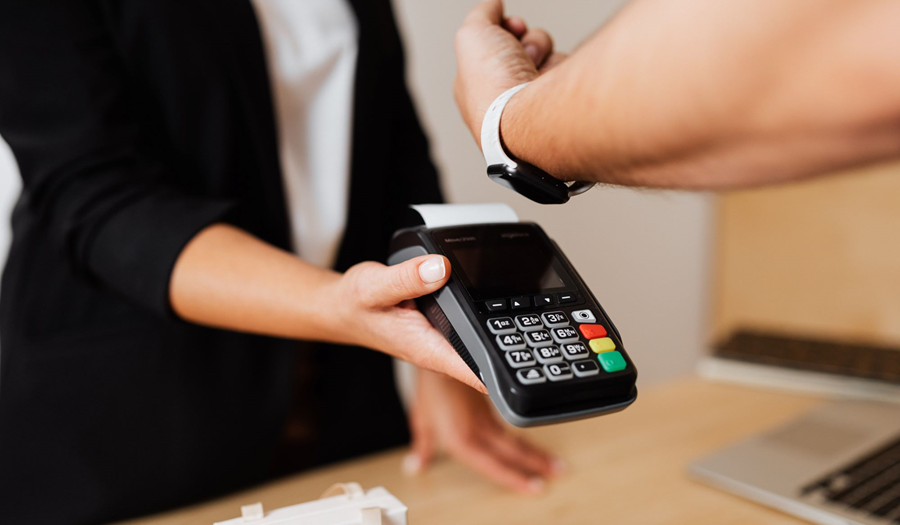
How a Cashless Society Can Affect the Unbanked
10/26/2023
An individual is said to be unbanked when they don’t hold any accounts at a bank or credit union. Households are unbanked when none of their members are bank account holders. The reasons for being unbanked vary, including mistrust of banking institutions and high fees. Mobile banking, which has become popular for its convenience, has been recognized as having the potential to drive an increase in banking among the unbanked.
The main reason for being unbanked is cost; those who are unbanked can’t meet the banks’ minimum requirement balances. Someone living paycheck-to-paycheck with very low or volatile income may not be able to wait for a paycheck to clear at a bank. Instead, they turn to a check-cashing service, which will provide cash immediately for a fee. There are also certain areas of the country referred to as ‘bank deserts.’ Bank deserts are any geographic area without a local bank branch. If you live in a bank desert, you may not find a bank within a half hour radius. This inconvenience leads people to remain unbanked rather than going out of their way to find a bank.
Read More: Budgeting For Every Dollar
Unbanked vs. Underbanked
As previously stated, being unbanked refers to adults who don’t use or don’t have access to traditional financial services, including savings accounts, credit cards, or personal checks. Being unbanked often goes hand in hand with being underbanked, although this is a bit different.
Underbanked individuals are people with bank accounts who frequently rely on alternative financial services, such as money orders, check-cashing services, and payday loans rather than traditional loans and credit cards to handle their finances and pay for expenses. This could be due to limited access to affordable banking services or simply because they prefer alternative financial options.
Cashless Society
A cashless society is one where cash, paper and coin currencies aren’t used for financial transactions. Instead, people and businesses transfer money to one another digitally, via credit or debit cards, electronic money transfers, or online and mobile payment services. In many ways, these cashless systems of payment make life easier. However, would having no cash at all in society be a good thing? There are both advantages and disadvantages to becoming a cashless society.
Read More: How to Organize your Finances and Why it Matters
Advantages of cashless society
People who support a cashless society argue that digital transactions are more convenient for customers and businesses. Swiping a credit card or scanning your phone makes buying things quick and simple and requires no counting out of cash or making change. A cashless society also has the potential to cut down on certain criminal activities. If you’re not carrying hundreds of dollars in cash, you’re less of a target for robbery. If a thief does steal your credit cards or smartphone, most companies provide theft protection, ensuring you don’t have to pay for fraudulent purchases on your card or mobile wallet app.
A cashless society would not only be safer for consumers, but also for businesses. Cashless payment systems can reduce business risks by providing increased security, speed, and record keeping, as well as improving customer convenience and facilitating international transactions. These systems offer multiple layers of security to prevent unauthorized access, fraud, or theft. Also, with cashless payments, when users make any payment for the purchases of goods and services, it‘s automatically recorded online. These records can be easily stored and accessed for a variety of purposes, such as accounting, tax preparation, and business analysis.
Read More: Tax Season Primer
Disadvantages of a cashless society
A cashless society would force individuals to leave a record of everything they buy. This means that few purchases and sales would be anonymous. Cash allows you to spend money and receive funds while keeping your identity private. Additionally, technology problems could impact your access to funds. Glitches, outages, and innocent mistakes can also cause problems, leaving you unable to buy things when you need them. Likewise, merchants have no way to accept payments when systems malfunction.
A cashless society could lead people to disregard their budget and be more likely to overspend. When you spend money in cash you recognize the financial impact by physically taking the cash out of your pocket and giving it to someone else. With electronic payments, on the other hand, it’s easy to swipe, tap, or click without noticing how much you spend. While the movement from cash payment to a cashless society has effectively reduced some crimes, it has created a path for new ones. Hackers are the bank robbers of the electronic world. In a cashless society, you’re more exposed to hackers. If you’re targeted and somebody drains your account, you may not have any alternative ways to spend money.
Read More: How to Protect Your Identity
How a cashless society will affect the unbanked
A cashless society could bring various challenges for the unbanked and underbanked population. This group of people might not have consistent, reliable access to modern financial services or digital technology due to income, location, or other reasons, thus they might rely heavily on cash transactions. In a world without cash, these people could be at risk of being further marginalized and left behind financially. Cash is often the only way to guarantee financial inclusion, as it allows users to make payments at no costs. Many consumers will want to continue to use cash for a variety of reasons, such as preserving anonymity, convenience, or budgeting purchases.
It’s crucial to make sure that no one is left behind in a transition to a cashless society. Failing to do so would leave the unbanked unable to access the payment mechanisms they need to acquire goods and services. As society makes progress in technology, we should keep in mind those who still lack the basics, like a bank account, and how they could be left behind. Millions of Americans could be excluded if you require them to pay with a card or app.
Read More: Overcoming Barriers of Financial Inclusions
Although America might not be as close to a cashless society as other places such as Sweden or China, it could happen in our lifetime. The steadily increasing use of cashless payment methods means that one day cash may become obsolete. Meanwhile, greater security and enhanced technology will help support the ongoing growth of a cashless system. In the meantime, requiring banks and businesses to continue accepting cash provides a safety net for the unbanked community ensuring that people aren’t left behind.

Katherine Fatta is the Social Media and Content Specialist at Navicore Solutions. She creates fun and informative social media posts that engage the public. She’s also the host of Navicore’s podcast, ‘Millennial Debt Domination.’ You can listen to our podcast here.
You can follow Navicore Solutions on Facebook, Twitter, LinkedIn and Pinterest. We’d love to connect with you.